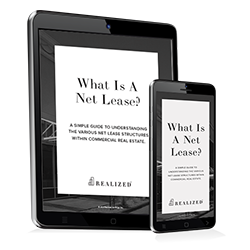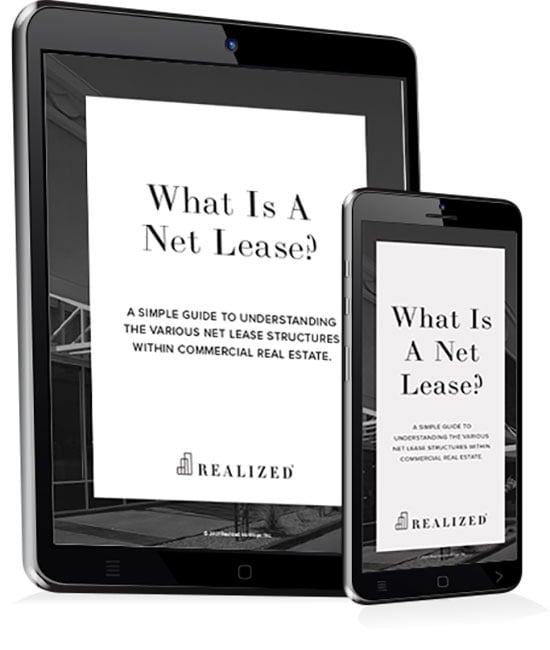
Credit tenants generally provide cash flow reliability. These are larger, usually, publicly-traded companies that have investor-grade bond ratings. While that might sound attractive to landlords, it’s important to fully understand what a credit tenant is and which risks they may introduce. In this article, we’ll go over both.
The Value of Credit Tenants
Credit tenants are sometimes referred to as national tenants. Think CVS or Walgreens. These tenants have a national footprint and strong financials. Credit tenant bonds have been rated by large credit rating agencies such as Moody’s, Fitch, and S&P. Bonds have different ratings depending on the financial strength of the company. Those companies with the highest ratings (i.e., investment grade) are considered credit tenants.
Because of their financial strength, credit tenants are able to weather volatile periods. When other businesses are shuttering, your credit tenant is likely to remain stable. This equates to consistent and steady cash flows as well. In addition to stable cash flow streams, credit tenants can also increase the exit value of the investment. Because there is an accepted and perceived safety of these tenants vs. a local/small business, an investor is likely to achieve more appreciation on the sale.
At the end of the day, you have to make an assessment as to whether a credit tenant presents a good value. If you are trying to lease a large space, credit tenants might be a good option. For strip malls, credit tenants should also attract traffic to adjacent businesses. As well, having an anchor tenant can help boost surrounding property values within the development.
Are There Any Risks With Credit Tenants?
Credit tenants bring with them many advantages for landlords. But it’s important not to have tunnel vision when it comes to analyzing these tenants. Here are a few risks to be aware of.
Market Risk
Credit tenants often take on long-term leases. If your tenant starts leasing during a recession or just as the economy is coming out of one, a long-term lease can be a problem. As the economy continues to improve, demand for properties/leases will go up. At some point, your credit tenant’s lease will be undervalued (i.e., rent below market rates). However, there isn’t anything you’ll be able to do about it. If the tenant is in year 3 of a 15-year lease, the investor might have to accept 12 years of below-market rent while watching their fellow investors' shorter-term leases capture market rent increases.
Even if your preference is for a shorter or mid-term lease, a credit tenant may demand a long-term lease. You’ll have to weigh future economic conditions against the prospect of losing out on any long-term lease. It may be possible to negotiate a shorter-term lease with various concessions built in to satisfy the client. On the other hand, take into consideration that cash flows from the tenant will be reliable.
Vacancy Risk
Once a larger (credit) tenant leaves, it can be more difficult to lease the space again without finding another long term credit tenant. There may be options to divide the space up, which can be a more difficult strategy. The vacancy risk itself isn't specific to credit tenants; however, if the investor isn't able to re-lease to another credit tenant, they face a decline in value.
Are Non-Credit Tenants Worth it?
Non-credit tenants are generally private, smaller businesses. They may be a mom and pop type shop. The financial strength of these businesses can be much less than that of a credit tenant. The type of business is a large factor also. Smaller credit tenants require a greater degree of risk underwriting and analysis to protect your downside. For example, is the business restricted to local foot traffic only or is it also online. If online, what percentage of revenues does that account for?
Ask to see the last 2-3 years of audited financials or tax returns to establish a trend. Review the business the same way a lender would, who is lending them a large chunk of cash. Is the customer mix diverse or concentrated in one sector? Check debt ratios and EBITDAR (Earnings before Insurance Taxes Depreciation and Rent), etc. Such analysis will help in determining the business’s revenue diversity and variability as a reliable tenant.
In a stand-alone building with a triple net lease, smaller businesses can be risky. But in a shopping center where there is more overall traffic, risks can be reduced for the same tenant.
Thorough due diligence is at the heart of determining if any potential tenant will be a good fit. There isn’t any reason to disregard all non-credit tenants. The increase in risk should be balanced by an increase in return. For the right investor, non-credit tenants can certainly be worth it after proper analysis of their business financials have been completed.
This is not to confuse a non-credit tenant with a low-credit tenant. The two are very different. A low-credit business is considered high risk and not favorable as a tenant. It might be tempting to consider a low-credit tenant because of the higher rents that can be charged. However, these tenants are at a greater risk of failing during a downturn.
Keep in mind that lenders take into consideration lease terms and a property’s aggregate creditworthiness, which includes the sum of its tenant credit ratings. So in a portfolio of tenants, low-credit tenants will drag down the overall rating, which can lead to unfavorable lending terms and eventually lower returns upon exit.
Does A Government Tenant = Credit Tenant?
If a credit tenant offers plenty of cash flow stability and is considered financially strong, is a government tenant even better?
In short — they can be. Government tenants are the lowest risk tenants on the market. Thinking back to bond ratings from earlier, government tenants are able to sometimes borrow at super low Treasury rates because of their extremely high credit rating. It is important to understand which entity is on the lease, and which government department the building is serving. Could the department/entity up and leave, or is it mission critical? Is the department/entity temporarily funded?
Is a government tenant worth it? Like any lease, it will depend on the terms demanded by the tenant. You probably won’t be able to charge the highest rents with a government tenant. However, your cash flows could be consistent and reliable.



